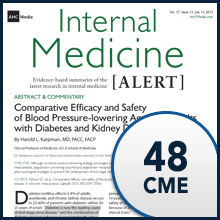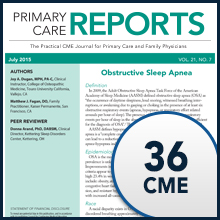Medicare Patients Have Lower Mortality Rates With Female Physicians
December 20th, 2016
BOSTON — A woman’s touch appears to matter when it comes to reduced mortality for elderly hospitalized patients.
A study published in JAMA Internal Medicine finds that those treated by female physicians are less likely to die within 30 days of admission, or to be readmitted within 30 days of discharge, than those cared for by male physicians.
The research from Harvard T.H. Chan School of Public Health was the first to document differences in how male and female physicians treat patients and whether that results in different outcomes for hospitalized patients in the United States.
In fact, the researchers calculate that if male physicians could achieve the same outcomes as their female counterparts, 32,000 fewer Medicare patients would die each year.
"The difference in mortality rates surprised us," explained Yusuke Tsugawa, MD, MPH, PhD, research associate in the Department of Health Policy and Management. "The gender of the physician appears to be particularly significant for the sickest patients. These findings indicate that potential differences in practice patterns between male and female physicians may have important clinical implications."
While previous studies have found differences in the way female and male physicians practice, including that women are more likely to adhere to clinical guidelines and provide more patient-centered communication, no previous evidence exists for how those variations affect clinical outcomes, according to study authors.
For the study, researchers analyzed data from more than 1 million Medicare beneficiaries age 65 years or older hospitalized with a medical condition and treated by general internists between 2011 and 2014.
Results indicate that, if treated by a female physician, patients had a 4% lower relative risk of dying prematurely and a 5% lower relative risk of being readmitted to a hospital within 30 days.
The association was seen across a wide variety of clinical conditions and variations in severity of illness. Even when the researchers restricted their analysis to hospitalists, results remained consistent, suggesting that patient selection didn't explain the results.
"There was ample evidence that male and female physicians practice medicine differently. Our findings suggest that those differences matter and are important to patient health,” said senior author Ashish Jha, MD, MPH, K.T. Li Professor of Health Policy and director of the Harvard Global Health Institute. “We need to understand why female physicians have lower mortality so that all patients can have the best possible outcomes, irrespective of the gender of their physician.”
Female physicians now are about a third of the U.S. physician workforce and half of U.S. medical school graduates, according to the article.

FEATURED RESOURCES




